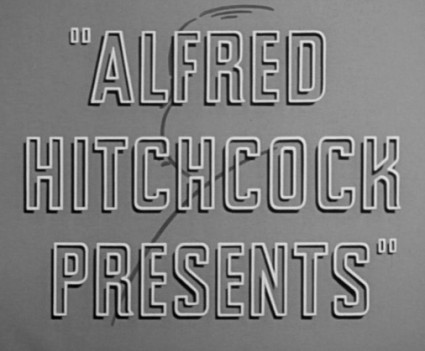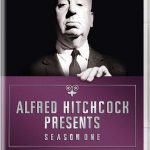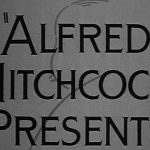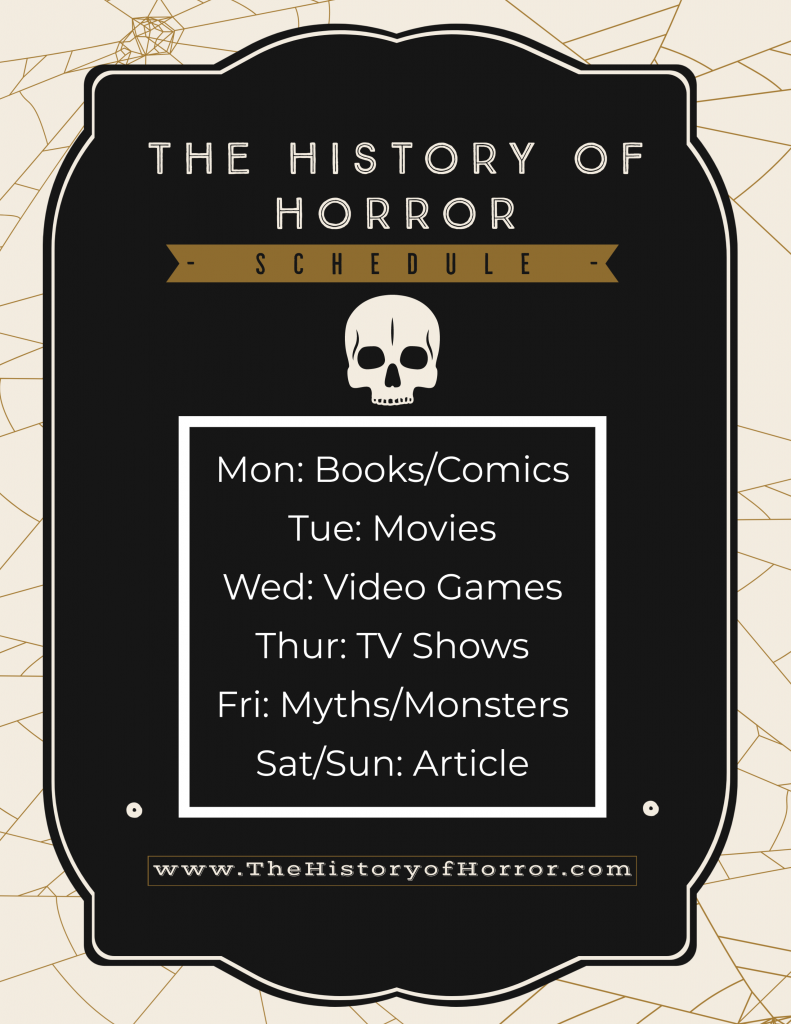Alfred Hitchcock Presents
Alfred Hitchcock Presents is an American television anthology series created, hosted, and produced by Alfred Hitchcock, and aired on CBS and NBC between 1955 and 1965. It features dramas, thrillers, and mysteries. Between 1962 and 1965 it was renamed The Alfred Hitchcock Hour. Hitchcock himself directed a relatively small number of episodes.
By the time the show premiered on October 2, 1955, Hitchcock had been directing films for over three decades. Time magazine named Alfred Hitchcock Presents as one of “The 100 Best TV Shows of All Time”. The Writers Guild of America ranked it #79 on their list of the 101 Best-Written TV Series.
A series of literary anthologies with the running title Alfred Hitchcock Presents were issued to capitalize on the success of the television series. One volume, devoted to stories that censors would not allow to be adapted for broadcast, was entitled Alfred Hitchcock Presents: Stories They Wouldn’t Let Me Do on TV — though eventually several of the stories collected therein were adapted.
History
Alfred Hitchcock Presents is well known for its title sequence. The camera fades in on a simple line-drawing caricature of Hitchcock’s rotund profile (which Hitchcock drew), to the theme music of Charles Gounod’s “Funeral March of a Marionette” (suggested by Hitchcock’s long-time musical collaborator Bernard Herrmann). Hitchcock appears in silhouette from the right edge of the screen, and then walks to center screen to eclipse the caricature. He then almost always says, “Good evening.” The caricature drawing and Gounod’s “Funeral March of a Marionette” have become indelibly associated with Hitchcock in popular culture.
Hitchcock appears again after the title sequence and drolly introduces the story from an empty studio or from the set of the current episode; his monologues were written by James B. Allardice. At least two versions of the opening were shot for every episode. A version intended for the American audience would often spoof a recent popular commercial or poke fun at the sponsor, leading into the commercial. An alternative version for European audiences would include jokes at the expense of Americans in general. For later seasons, opening remarks were also filmed with Hitchcock speaking in French and German for the show’s international presentations.
Hitchcock closed the show in much the same way as it opened, but mainly to tie up loose ends rather than joke. Frequently, a leading character in the story would have seemingly gotten away with a criminal activity; in the postscript, Hitchcock would briefly detail how fate (or the authorities) eventually brought the character to justice. Hitchcock told TV Guide that his reassurances that the criminal had been apprehended were “a necessary gesture to morality.”
Alfred Hitchcock Presents finished at number 6 in the Nielsen ratings for the 1956–57 season, number 12 in 1957–58, number 24 in 1958–59, and number 25 in 1959–60. The series was originally 25 minutes per episode, but it was expanded to 50 minutes in 1962 and retitled The Alfred Hitchcock Hour. Hitchcock directed 17 of the 267 filmed episodes of Alfred Hitchcock Presents — four during the first season and one or two per season thereafter. He directed only the fourth of the 93 50-minute episodes, entitled “I Saw the Whole Thing” with John Forsythe. The last new episode aired on June 26, 1965, but the series has continued to be popular in television syndication for decades.
Guest Stars
Actors appearing in the most episodes include Patricia Hitchcock (Alfred Hitchcock’s daughter), Dick York, Robert Horton, James Gleason, John Williams, Robert H. Harris, Russell Collins, Barbara Baxley, Ray Teal, Percy Helton, Phyllis Thaxter, Carmen Mathews, Mildred Dunnock, Alan Napier, Robert Vaughn, and Vincent Price.
Many notable film actors, such as Robert Redford, Inger Stevens, Sir Cedric Hardwicke, Robert Newton, Steve McQueen, Bruce Dern, Walter Matthau, George Segal, Laurence Harvey, Claude Rains, Joan Fontaine, Thelma Ritter, Dennis Morgan, Joseph Cotten, Vera Miles, Tom Ewell, Peter Lorre, Bette Davis, Dean Stockwell, Jessica Tandy, Sir Roger Moore, John Cassavetes, Teresa Wright and Barbara Bel Geddes, among others, also appeared on the series.
Directors
The directors who directed the most episodes included Robert Stevens (44 episodes), Paul Henreid (28 episodes), Herschel Daugherty (24 episodes), Norman Lloyd (19 episodes), Alfred Hitchcock (17 episodes), Arthur Hiller (17 episodes), James Neilson (12 episodes), Justice Addiss (10 episodes), and John Brahm (10 episodes). Other notable directors included Robert Altman, Ida Lupino, Stuart Rosenberg, Robert Stevenson, David Swift and William Friedkin, who directed the last episode of the show.
Broadcast History
The broadcast history was as follows:
- Sunday at 9:30–10 p.m. on CBS: October 2, 1955 – September 1960
- Tuesday at 8:30–9 p.m. on NBC: September 1960 – September 1962
- Thursday at 10–11 p.m. on CBS: September—December 1962
- Friday at 9:30–10:30 p.m.on CBS: January— September 1963
- Friday at 10–11 p.m. on CBS: September 1963 – September 1964
- Monday at 10–11 p.m. on NBC: October 1964 – September 1965
Episodes
Alfred Hitchcock Presents, 25 minutes long, aired weekly at 9:30 on CBS on Sunday nights from 1955 to 1960, and then at 8:30 on NBC on Tuesday nights from 1960 to 1962. It was followed by The Alfred Hitchcock Hour, which lasted for three seasons, September 1962 to June 1965, adding another 93 episodes to the 268 already produced for Alfred Hitchcock Presents.
Two episodes that were directed by Hitchcock were nominated for Emmy Awards. The first episode was “The Case of Mr. Pelham” in 1955 that starred Tom Ewell while the second was “Lamb to the Slaughter” in 1958 that starred Barbara Bel Geddes and Harold J. Stone. In 2009 TV Guide‘s list of “100 Greatest Episodes of All Time” ranked “Lamb to the Slaughter” at #59. The third season opener “The Glass Eye” (1957) won an Emmy Award for director Robert Stevens. An episode of The Alfred Hitchcock Hour titled “An Unlocked Window” (1965) earned an Edgar Award for writer James Bridges in 1966.
Among the most famous episodes remains writer Roald Dahl’s “Man from the South” (1960) starring Steve McQueen and Peter Lorre, in which a man bets his finger that he can start his lighter 10 times in a row. This episode was ranked #41 on TV Guide‘s 100 Greatest Episodes of All Time. The episode was later referenced and remade in the film Four Rooms, with Quentin Tarantino directing a segment called “The Man from Hollywood”.
The 1962 episode “The Sorcerer’s Apprentice” was not aired by NBC because the sponsor felt that the ending was too gruesome. The plot has a magician’s helper performing a “sawing a woman in half” trick. Not knowing that the performance is meant to be an illusion, the helper actually cuts an unconscious woman in half. The episode has since been shown in syndication.








